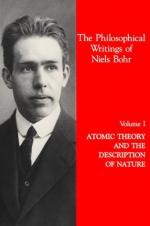|
This section contains 778 words (approx. 3 pages at 300 words per page) |

|
One of the points of dispute among early Greek philosophers was the ultimate nature of matter. The question was whether the characteristics of matter that can be observed with the five senses are a true representation of matter at its most basic level. Some philosophers thought that they were. Anaxagoras of Klazomenai (c. 498–428 B.C.), for example, taught that matter can be sub-divided without limit and that it retains its characteristics no matter how it is divided.
An alternative view was that of Leucippus of Miletus (about 490 B.C.) and his pupil, Democritus of Abdera (c. 460–370 B.C.). The views of these scholars are preserved in a few fragments of their writings and of commentaries on their teachings. Some writers doubt that Leucippus even existed. In any case, the ideas attributed to them are widely known. They thought that all matter consists of tiny, indivisible particles...
|
This section contains 778 words (approx. 3 pages at 300 words per page) |

|


